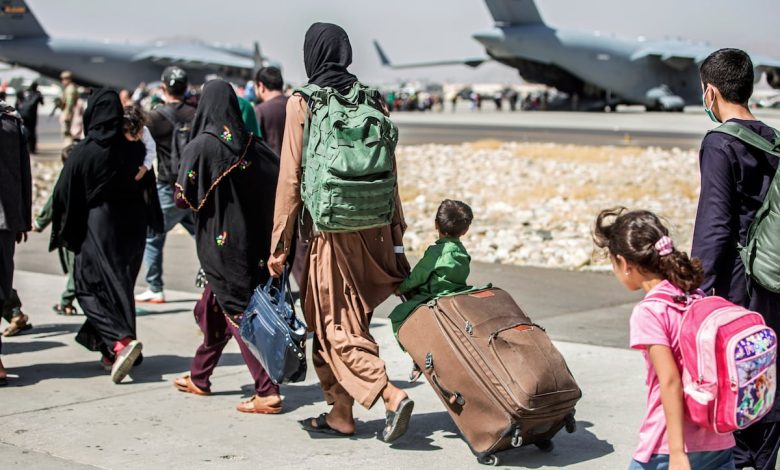Trump administration plans to end Afghan relocation programs

Two foundational government pathways for the resettlement of Afghan allies and refugees would be terminated under executive branch plans shared with Congress last week.
The U.S. State Department informed Congress in a May 29 congressional notification letter that it will close the Coordinator for Afghan Relocation Efforts office, which handles planning and logistics for the relocation of Afghans who qualify for Special Immigrant Visas, Immigrant Visas and the United States Refugee Assistant Program, or USRAP.
“The Coordinator for Afghan Relocation Efforts (CARE) Office will be eliminated and its functions will be realigned to the Afghanistan Affairs Office,” the letter read.
The move, which will see the office shut its doors by July 1, comes amid a plan to restructure the State Department.
The White House’s proposed 2026 budget, shared May 30, dealt another blow to relocation efforts by recommending to strike down Operation Enduring Welcome, a program facilitated by CARE that relocates Afghan nationals who are endangered because of their involvement with U.S. war efforts in the region.
“The Department will shut down the Enduring Welcome program by the end of FY 2025,” the fiscal year 2026 budget appendix states. “Consequently, the Budget includes no funding for the Enduring Welcome Administrative Expenses account.”
Under the proposal, Operation Enduring Welcome would end Sept. 30, 2025, at the conclusion of the 2025 fiscal year.
AfghanEvac, an organization dedicated to relocation efforts for Afghan allies, lambasted the news.
“The CARE Office was established to fix the failures of the U.S. withdrawal. Eliminating it — without public explanation, transition planning or reaffirmation of mission — is a profound betrayal of American values and promises,” AfghanEvac said in a public statement.
RELATED
The organization said the abolishing of CARE defies the CARE Authorization Act of 2024 — included in section 7810 on page 1,804 of the 2024 National Defense Authorization Act — which specifically calls for the Secretary of State to appoint a coordinator for the program through Dec. 2027.
The move is the latest in a series of developments thwarting the resettlement of Afghan refugees.
Secretary of Homeland Security Kristi Noem announced in early May the end of temporary protected status, or TPS, for Afghanistan, stating that the region’s safety had improved and no longer posed a threat to the well-being of those returning.
The status, ending July 14, offered protection from deportation to individuals who would otherwise face harm if they returned to their origin country.
RELATED

But Afghans and U.S. service members with relatives stuck in Afghanistan told Military Times in February that their families constantly feared for their lives with the threat of the Taliban hanging over their heads.
Shawn VanDiver, CEO of AfghanEvac, estimated the end of TPS would impact more than 11,000 individuals from Afghanistan living in the U.S.
Speaking on a Zoom call last week after the news of CARE’s end, VanDiver estimated the closure of Operation Enduring Welcome would affect nearly 300,000 Afghans in need of assistance.
About 212,000 of those individuals live in Afghanistan, while 3,000 are relatives of active duty U.S. military personnel, VanDiver and AfghanEvac estimated.
If both programs dissolved, VanDiver said it would remove implicit U.S. protection, leaving the fate of military allies in Afghanistan up to the Taliban.
“The United States is saying, ‘Do what you want with these people. We don’t care,’” VanDiver said in a phone call with Military Times.
Riley Ceder is a reporter at Military Times, where he covers breaking news, criminal justice, investigations, and cyber. He previously worked as an investigative practicum student at The Washington Post, where he contributed to the Abused by the Badge investigation.
Read the full article here









